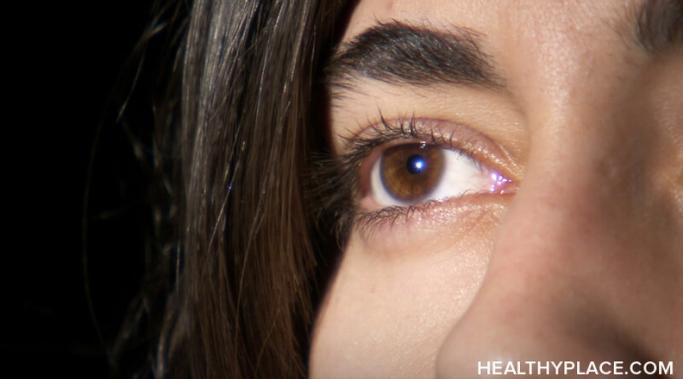Dissociative identity disorder (DID) is just one of several diagnoses listed in the dissociative disorders section of the Diagnostic and Statistical Manual of Mental Disorders (DSM-5). Many people live with dissociative symptoms, but don't meet all of the criteria necessary for a diagnosis of DID. When this is the case, a different diagnosis -- other specified dissociative disorder (OSDD) -- can be more fitting. These diagnoses all have dissociation in common, so what makes them different?
Dissociative Living
People with dissociative identity disorder (DID) often experience recurring grief. This grief is not always connected to physical loss and death. It can also be connected to symbolic loss, a type of loss commonly experienced by trauma survivors. This type of loss can have profound, lasting effects. For a person with DID experiencing grief because of symbolic loss, the entire system can be affected, complicating the grieving process even more.
Grief and dissociative identity disorder can be complicated. People experience grief at various times throughout their lives, often when someone passes away. These losses can be difficult to manage, and when you have dissociative identity disorder (DID), that grief can be even more complicated. Recognizing the complexity of grief and working through it is important for those with DID in order to get through times of loss.
Disclosing a dissociative identity disorder (DID) diagnosis is a personal choice. There are many options regarding dos and don'ts of disclosure, and all of the pros and cons should be considered before making a decision. It is especially important to consider the risks of disclosing a DID diagnosis, and be prepared for any negative consequences that may come as a result of being open.
I am living with dissociative identity disorder and I can't just "get over it." Would you tell someone with diabetes to "just get over it?" Dissociative identity disorder (DID) and other mental illnesses are illnesses. They all have causes, treatments, and greatly affect the individuals that have them. Mental illness is not a choice. It cannot be switched off and on at will. No one can wake up and decide they aren't going to be mentally ill that day. So why do some people expect those with mental illnesses like DID to just get over it?
Dissociative identity disorder (DID) includes the experience of hearing voices, medically referred to as auditory hallucinations. This is also a common symptom in several other mental illnesses, including schizophrenia, schizoaffective disorder and bipolar disorder. The experience of hearing voices in DID is quite different from the experience of hearing voices in other disorders, however, and the causes and treatments are not the same.
Life with dissociative identity disorder (DID) is a journey full of new discoveries, growth and understanding. It is also a journey full of denial, confusion, and pain. Just when you think you have a grasp on life with DID, something (a new alter, or a new memory, perhaps) comes along and shakes everything up. Life with DID can be a difficult journey, but it's not an impossible one.
While the experience of alters becomes the norm when you have dissociative identity disorder (DID), it can be difficult for those without the disorder to understand what the experience of having alters in DID is like. To continue with Mental Health Month and the #mentalillnessfeelslike campaign, I asked a group of people with DID to describe how it feels to have alters. Here is a glimpse of what it feels like.
What does life with dissociative identity disorder feel like? May is Mental Health Month and people around the world are sharing what mental illness feels like. To go along with the #mentalillnessfeelslike campaign, I asked a group of people with dissociative identity disorder (DID) to describe, in their own words, what having DID feels like. The answers were varied, with both positives and negatives. To one person, living with DID feels like, "having a war inside my head," yet to another, DID "feels like a gift." The answers show just how diverse DID really is.
For those living with dissociative identity disorder (DID), self-care -- even the most basic physiological and safety needs -- can feel like impossible tasks to fulfill, especially during times when self-care is most needed. If basic needs are unmet, this can hinder the healing process and make living with DID a little more challenging. You must meet your basic needs with DID self-care.


